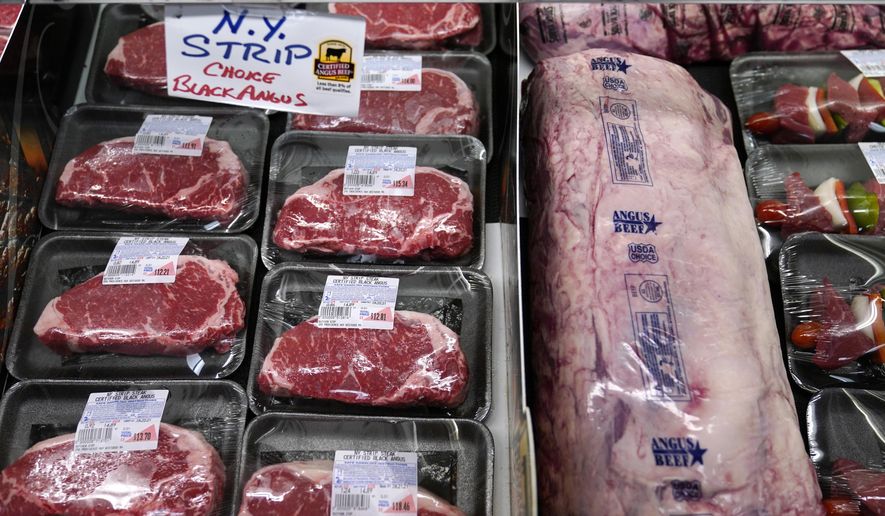GOP lawmakers in a new study are warning that skyrocketing inflation under President Biden is costing the average American household as much as $385 per month.
Republicans on the Joint Economic Committee, led by Sen. Mike Lee of Utah, are out with a new analysis indicating that inflation is costing households hundreds of dollars a month in rising costs for food, gas and other essential goods
“On average, American households are paying $385 more per month, but in some areas of the country, inflation is being felt even more acutely,” said Mr. Lee.
While nearly every single American is feeling the impact of inflation, some are being hurt worse than others. Regional inflation levels, according to the Joint Economic Committee, differ widely because of “varying consumer preferences … and transportation costs determined by geography and distance from suppliers.”
For instance, citizens on the East Coast have seen inflation spike between 6% to 7% percent over the past year. The impact has been that residents are paying on average more than $368 per month for housing, groceries, energy and transportation.
By comparison, residents of the Mountain West — states such as Montana, Utah and New Mexico — have seen inflation jump by roughly 9% or $511 more per month on average for living expenses.
Overall, across the country inflation has soared by 7.5% over the past, the Bureau of Labor Statistics said last month, the steepest jump in prices since 1982.
GOP lawmakers argue that Mr. Biden’s policies, especially the White House’s policies inhibiting domestic energy production and billions of dollars in new federal coronavirus and infrastructure spending, are responsible.
“Families in Utah are facing costs upwards of $500 more per month due to the massive social spending agenda that President Biden doubled down on last night,” said Mr. Lee. “Americans are hurting after a year of failed economic policies. Our country deserves better.”
Democrats contend that they inherited rising federal debt levels from former President Donald Trump. The reviving post-COVID economy and continuing supply-chain bottlenecks are also putting upward pressure on prices as the growing U.S. economy adds jobs and wages rise, they add. Other developed countries, they note, are facing the same inflationary pressures.
“Inflation is a global challenge, appearing in virtually every developed nation as it emerges from the pandemic economic slump,” said Mr. Biden.
But the Biden administration and congressional Democratic majorities are still left on the hook for having to devise a comprehensive plan to combat it. Those efforts have failed to generate unity or new ideas, however.
Critics say congressional Democrats and the White House have taken a piecemeal approach to the topic, proposing myriad solutions with little uniformity or consistency.
Mr. Biden is still urging Congress to restart negotiations on his $1.75 trillion social welfare and climate-change package. Administration officials say the legislation, which died last year because of Democratic opposition, will go a long way to combating inflation in the longer term by increasing productivity.
“My plan to fight inflation will lower your costs and lower the deficit,” Mr. Biden said. “Seventeen Nobel laureates in economics say my plan will ease long-term inflationary pressures.”
Congressional Democrats, meanwhile, are pushing their pet solutions to inflation, everything from suspending the federal gasoline tax to re-upping the expanded child care tax credit.
Fiscal hawks, even those within the Democratic Party, doubt that more federal spending and borrowing will fix the problem. Some even argue the tactic could push prices higher by spurring demand for goods and services that are already limited because of supply chain issues.
“I’ve never found out that you can lower costs by spending more,” said Sen. Joe Manchin III, West Virginia Democrat.
• Haris Alic can be reached at halic@washingtontimes.com.




Please read our comment policy before commenting.